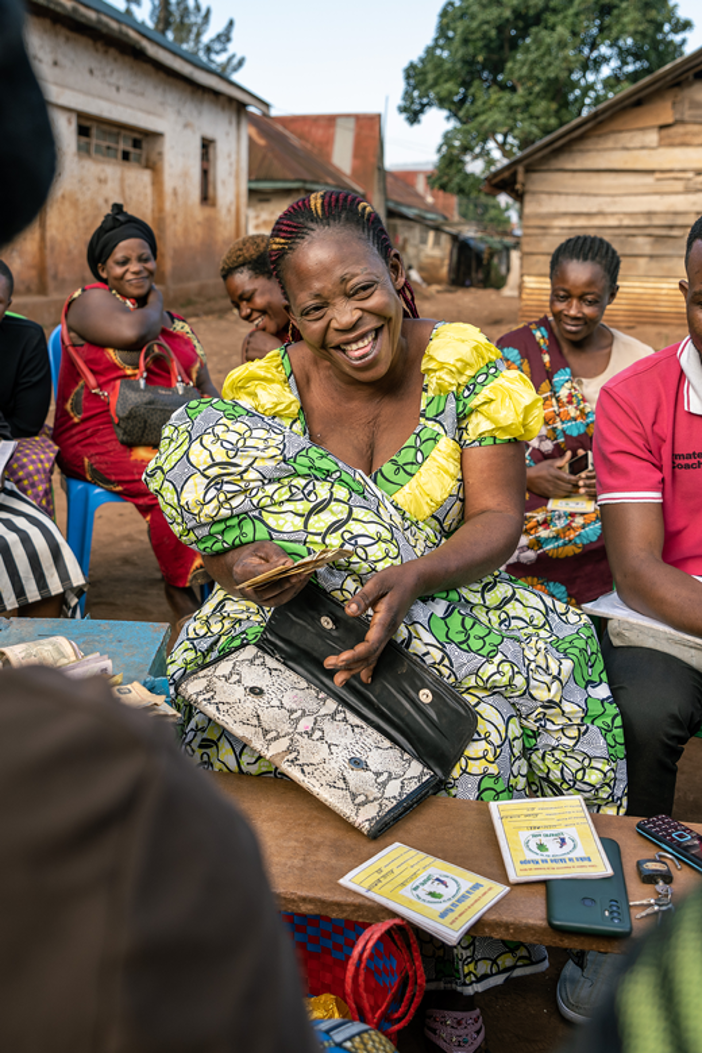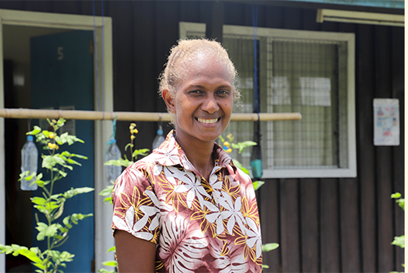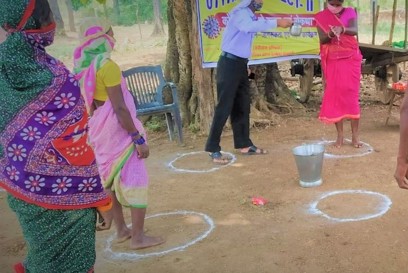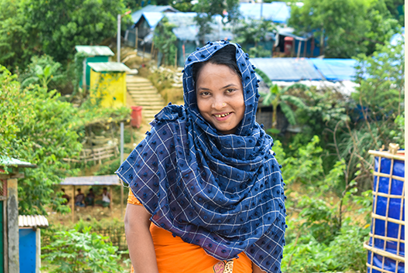The World Economic Forum estimates that it will take 132 years for women to reach full gender parity, but for billions of women, this comes way too late. Adding to this, issues like climate change, the COVID-19 pandemic, emergencies and ongoing conflicts have further exacerbated gender inequality in recent years. In many countries around the world, female populations aren’t afforded the same protections and safety nets that are often awarded to men and boys. Caritas Australia therefore takes a multi-pronged approach to addressing gender inequality in a way that not only aims to close the gender gap but build resilience within female populations vulnerable to crises.
The causes and conditions leading to gender inequality are immense and varied, but globally, some themes emerge:
Snapshot: Rosalie’s story, the Democratic Republic of Congo
As the child of a single mother who struggled to make ends meet, Rosalie was extremely vulnerable to exploitation in the community where she was growing up. When she was only 15 years old, she was forcibly recruited into the army. She said: “I was in the battlefield with my baby on my back. I walked with a child in my left hand.”
When she eventually managed to leave the army as a young adult, she came to the overwhelming realisation that she had missed out on socialisation skills and the education that would allow her to obtain work and income under normal civilian life. Thankfully, Caritas Australia’s support of the Catholic Agency for Overseas Development (CAFOD) and Caritas Bukavu, allowed Rosalie to enroll in several educational and training programs designed to help people in similar positions to her to gain meaningful employment and diversify their income sources. Now, she passes her skills onto other women in her area. She remarked: “Today I have already initiated two women from our groups to sell used shoes. They will buy them in Goma and resell them in Bukavu.”

Rosalie smiling while cradling her baby and working within a skills training program in the Democratic Republic of Congo. Credit: Arlette Bashizi/CAFOD
Snapshot: Sita’s Story, Nepal
After her husband passed away, Sita, 47, became the sole breadwinner for her family of four. Nepal is one of the least developed countries in South Asia. Thus, she struggled to make ends meet and was stigmatised for being a female widow. However, she knew the only way forward was to persist. “If I think that, being a single woman, I am weaker than others and hesitant to work, then I can't move ahead and will not be able to achieve anything in life… Instead, we should work harder to prove ourselves,” she said.
Sita joined the Livelihoods and Resilience Program supported by Caritas Australia and our partner, Caritas Nepal, where she received training to improve her agricultural skills and learned how to raise and care for livestock. Between 2021 and 2022, the program helped 3,221 people increase their food security.

Snapshot: Oliva’s Story, Tanzania
Oliva enrolled in literacy and numeracy classes as part of Caritas Australia’s A+ program, run by our local partner, Diocese of Mbulu Development Department (DMDD).
Her low family income growing up meant that she never had the opportunity to attend school, and as an adult unable to read, write or count, she felt ashamed. In Tanzania, 22 percent of females aged 15 and above face illiteracy (World Bank, 2021). Women in Tanzania also take on an unequal burden of household tasks.
Oliva works in a kiosk and does farming to make ends meet, but was losing money due to her innumeracy. “As an adult, people used to take advantage of me because I couldn’t count, I was operating my business at a great loss and was not in a position to save,” she said.
Through the program, Oliva learned numeracy and literacy skills, and passed those skills onto other local women who were too embarrassed to attend classes. Closing the gap in literacy for women is crucial to ending the cycle of poverty for future generations. Oliva remarked: “Education has enabled me to come closer to my children, as we do homework together, with an increase in the family bond.”

Oliva (centre) attends a community adult learning class near her home in Tanzania. Photo credit: August Lucky
Caritas Australia supports the dignity of every person, and stands with millions fighting the pervading conditions that lead to gender inequality, one of the biggest challenges to human rights the world faces today. Thanks to your generosity, Caritas Australia is able to continue to support programs across the globe that work to reduce inequality amongst women and girls.
Along with your generous support, these programs are also supported by the Australian Government, through the Australian NGO Cooperation Program (ANCP).
















